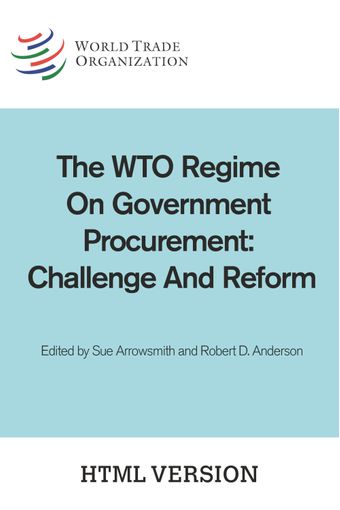A case study of regionalism: The EC–CARIFORUM Economic Partnership

- Authors: Kamala Dawar and Simon Evenett
- Source: The WTO Regime on Government Procurement , pp 23-23
- Publication Date: January 2011
- DOI: https://doi.org/10.30875/0779607f-en
- Language: English
The EC–CARIFORUM Economic Partnership Agreement was the first full Economic Partnership Agreement (EPA) to be negotiated and signed between the EC and an African, Caribbean and Pacific (ACP) region, as required by the terms of the Cotonou Agreement of 2000. It is also the only EPA under negotiation to dedicate a chapter to the regulation of government procurement policies. As such it stands not only as a reference point for other ACP countries’ EPA negotiations and other north–south regional trading agreements (RTAs), but it might also offer some insight into the perceived role of government procurement regulation in developing countries’ trade agreements with developed countries.
Ebook ISBN:
9789287046765
Book DOI:
https://doi.org/10.30875/50e883ea-en
Related Topics:
Government procurement
-
From This Site
/content/books/9789287046765s017-c003dcterms_subject,pub_countryId-contentType:WorkingPaperSeries -contentType:Periodical -contentType:BookSeries -contentType:ReportSeries105
/content/books/9789287046765s017-c003
dcterms_subject,pub_countryId
-contentType:WorkingPaperSeries -contentType:Periodical -contentType:BookSeries -contentType:ReportSeries
10
5


